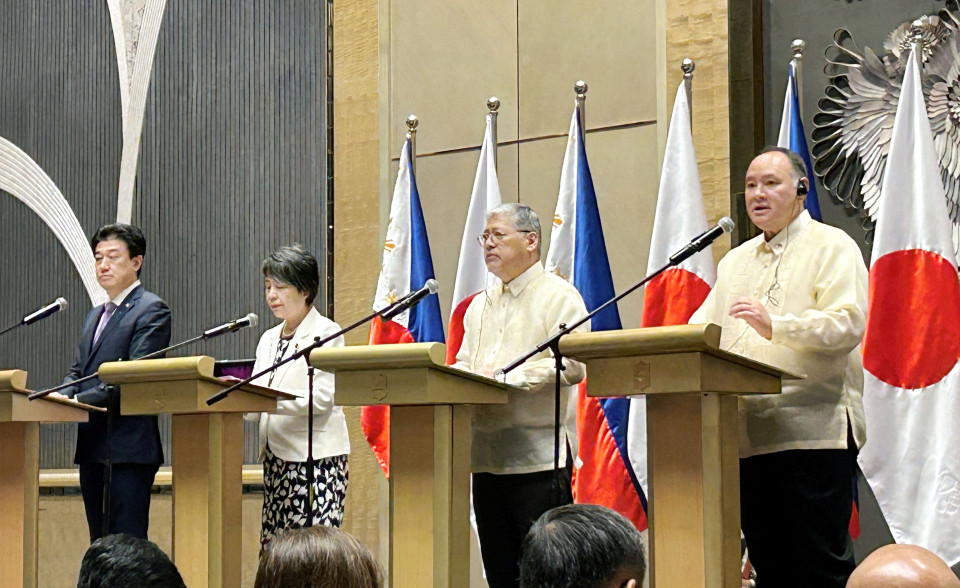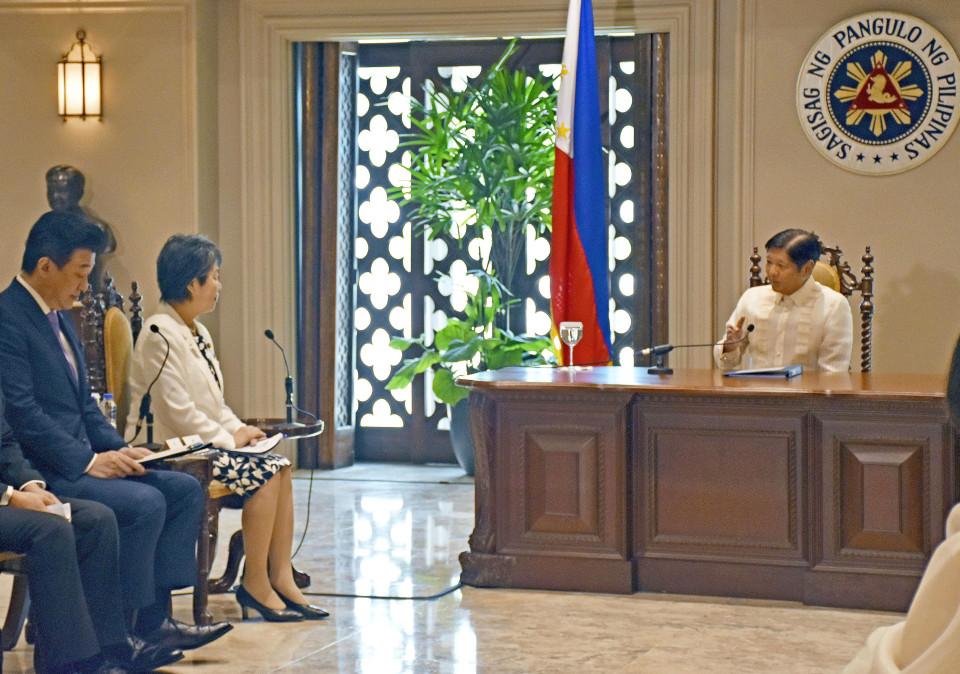Japan and the Philippines on Monday signed a bilateral defense agreement to facilitate joint exercises for closer security cooperation, amid China's growing assertiveness in regional waters.
Japanese Foreign Minister Yoko Kamikawa and Philippine Defense Secretary Gilberto Teodoro signed the Reciprocal Access Agreement in Manila. Philippine President Ferdinand Marcos Jr. witnessed the signing following his meeting with Kamikawa and Japanese Defense Minister Minoru Kihara.
Later in the day, the two nations aired "serious concern over the dangerous and escalatory actions by China" in the South China Sea in a joint press release following their "two-plus-two" security talks involving their foreign and defense ministers.

At the gathering, Philippine Foreign Secretary Enrique Manalo, Teodoro, Kamikawa and Kihara also said their close four-way collaboration with the United States and Australia is key to "promoting the shared vision for a free and open Indo-Pacific."
Japan's first RAA with a member of the Association of Southeast Asian Nations will ease restrictions on personnel transfers between the Japan Self-Defense Forces and the Philippine military for joint drills and disaster relief operations in each other's country.
At the outset of the morning meeting, Marcos said the new defense deal is "very important," while Kamikawa described it as a "big achievement."
Once the RAA takes effect, Japan will be able to participate as a full member in the large-scale Balikatan military exercise, which the Philippines and the United States conduct annually in the Southeast Asian nation. The SDF has previously joined in an observer capacity.
The press release said the RAA will "promote interoperability" between the two countries' forces. After the two-plus-two talks, Kihara told a joint news conference that Tokyo will boost collaboration bilaterally with Manila based on the pact, and multilaterally with others.
China reacted sharply to the signing of the Japan-Philippines RAA, with Foreign Ministry spokesman Lin Jian saying at a Beijing press conference that it "should not undermine regional peace and stability" or "target any third party."
"The Asia-Pacific region does not need military groups, let alone small circles that provoke bloc confrontation and instigate a new Cold War," Lin said, adding any actions that damage regional unity and cooperation will "arouse the vigilance and common opposition" of the people in the region.

Tokyo and Manila, both U.S. allies, have been ramping up defense ties in recent years in response to Beijing's growing activities and territorial claims in the East and South China seas.
Chinese coast guard ships have repeatedly engaged in aggressive activities near disputed shoals in the resource-rich South China Sea in recent months, including the ramming of several Philippine inflatable boats on June 17 that resulted in a Filipino soldier losing a finger. China claims sovereignty over almost the entire sea.
Chinese vessels have also repeatedly entered Japanese territorial waters around the Senkaku Islands, a group of uninhabited islets controlled by Tokyo in the East China Sea that are claimed by Beijing, which calls them Diaoyu.
The signing of the RAA between Japan and the Philippines came after Prime Minister Fumio Kishida and Marcos agreed last November to start negotiations on the pact.
Japan has already signed RAAs with Australia and Britain, both of which entered into force last year, and has a similar pact with the United States called the Status of Forces Agreement.
Related coverage:
U.S. Marine commandant says littoral regiment to be set up on Guam
Chinese, Philippine ships collide near disputed shoal in South China Sea
China's new rule allowing maritime trespasser detention takes effect










